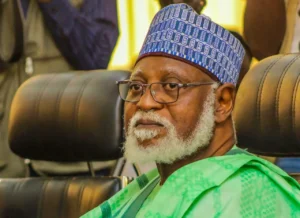THE IIIUSION OF POVERTY: RETHINKING RESOURCE MANAGEMENT FOR NATIONAL PROSPERITY

In a world where the disparity between wealth and poverty is stark, the notion that there are no inherently poor countries, only failed systems of resource management, offers a profound lens through which to examine national development. This perspective challenges the conventional narrative that attributes poverty to geographical, historical, or cultural factors. Instead, it posits that the true barriers to prosperity lie in the governance, policies, and management of resources.
By exploring this idea, we can uncover pathways for nations to realize their potential and transform into thriving, developed societies.
The Case for Effective Resource Management
At the heart of this reflection is the understanding that every nation possesses resources—be it natural, human, or intellectual. The difference between a thriving nation and a struggling one often boils down to how these resources are managed. Countries like Singapore and South Korea exemplify this principle. Both nations faced significant challenges in their early years, including limited natural resources and geopolitical tensions.
However, through strategic planning, investment in education, and a commitment to innovation, they transformed their economies and improved the quality of life for their citizens.
Singapore, for instance, has no natural resources to speak of, yet it has become a global financial hub. The government’s focus on creating a business-friendly environment, investing in human capital, and fostering a culture of innovation has led to sustained economic growth. The nation’s strategic location and robust infrastructure have further enhanced its appeal as a center for trade and commerce.
South Korea offers another compelling example. After the Korean War, it was one of the poorest countries in the world. However, through a series of five-year economic plans, heavy investment in education, and a focus on technology and manufacturing, South Korea emerged as a global leader in industries such as electronics and automotive. The government’s role in guiding economic development, coupled with a strong work ethic among its citizens, has been pivotal in this transformation.
The Role of Governance and Policy
Effective governance is crucial in transforming potential into prosperity. Countries that prioritize transparency, accountability, and the rule of law tend to manage their resources more effectively. For instance, Botswana has been lauded for its prudent management of diamond resources. Unlike many resource-rich nations that fall victim to the “resource curse,” Botswana has used its diamond wealth to invest in education, healthcare, and infrastructure, resulting in one of the highest growth rates in Africa.
Conversely, nations plagued by corruption and mismanagement often find themselves trapped in cycles of poverty. The Democratic Republic of the Congo, rich in minerals, remains one of the poorest countries due to decades of conflict, corruption, and ineffective governance. This stark contrast highlights the importance of sound policies and ethical leadership in resource management.
Human Capital: The Most Valuable Resource
While natural resources are significant, human capital is arguably the most critical asset for any nation. Countries that invest in education and skills development tend to experience higher levels of innovation and economic growth. Finland is a prime example of this principle in action. By prioritizing education and fostering a culture of lifelong learning, Finland has developed a highly skilled workforce that drives its economy and innovation.
Moreover, nations that embrace diversity and inclusivity often harness the full potential of their populations. Canada, with its multicultural society, has leveraged the talents and perspectives of its diverse citizenry to foster innovation and economic growth. By creating an environment where all individuals can contribute, Canada has positioned itself as a leader in various sectors, including technology and natural resources.
A Call to Action for Nations
The reflection that there are no poor countries, only failed systems of resource management, serves as a clarion call for nations to reassess their strategies and priorities. To advance into developed status, countries must:
- Invest in Governance: Establish transparent, accountable, and effective governance structures that prioritize the welfare of citizens and the sustainable management of resources.
- Focus on Education: Prioritize education and skills development to cultivate a workforce capable of driving innovation and economic growth.
- Embrace Innovation: Foster a culture of innovation by investing in research and development, supporting entrepreneurship, and creating an environment conducive to business growth.
- Leverage Natural Resources Wisely: Manage natural resources sustainably and ethically, ensuring that the benefits are equitably distributed among the population.
- Promote Inclusivity: Embrace diversity and inclusivity, recognizing that a wide range of perspectives and talents can drive progress and innovation. Conclusion
The journey from potential to prosperity is not an insurmountable challenge; it is a matter of effective resource management and governance. By learning from the successes of nations that have navigated this path, countries can chart their course toward development. The world is filled with examples of transformation, and the potential for every nation to thrive is within reach. It is time for countries to embrace their calling, harness their resources wisely, and work collectively toward a brighter, more prosperous future.







